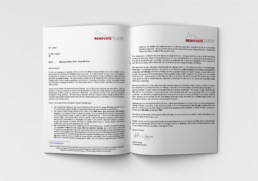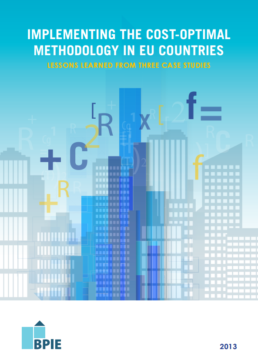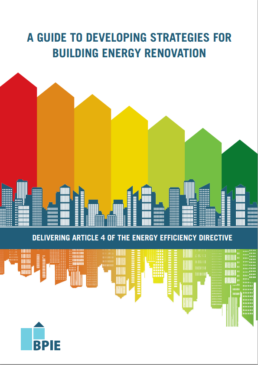Letters addressed to the 28 National Directors of the EIB
In July 2013, the Renovate Europe Campaign addressed a Letter to each National Director of the EIB about the need to flesh out the Energy Lending Criteria on Energy Efficiency of Buildings.
The aim was to remind the Directors to be more ambitious on the revision of the criteria on the field of Energy Lending.
Have a look at the Letter that was sent to the Natioanl Director for YOUR Member State:
- A. Aupperle
- A. Brandt
- A. Jacoby
- A. Therkildsen
- A. Tzimas
- C. Crespo
- C. Monticelli
- F. Godts
- G. Thomas
- I. Sikk
- J. Dominik
- J. Gregor
- J. Moran
- J. Sonne
- K. Andreopoulos
- K. Kakouris
- K. Karaivanova
- K. Kaszasova
- K. Sarjo
- M. Tuskiene
- P. Curwen
- P. Machado
- S. Bajare
- S. Gaudin
- T. Westphal
- W. Nitsche
- W. van den Wallbake
- Z. Urban
Letters addressed to 28 Heads of State for the European Council on Energy
Multiple Benefits Study – Awareness Raising with Finance Ministers
The Renovate Europe Campaign reaching out to 28 Finance Ministers about the Multiple Benefits of Investing in Energy Efficient Renovations
renovate-europe-campaign
The Renovate Europe Campaign is addressing letters to 28 Finance Ministers in the EU Member States and Croatia, highlighting the Multiple Benefits of Investing in Energy Efficient Renovations, and the positive impact on Public Finances. These letters are personalised to each of the 28 Ministers and drafted in the national languages.
Have a look at the letter that Renovate Europe is sending to YOUR Finance Minister in YOUR national language:
- Austria
- Belgium
- Bulgaria
- Croatia
- Cyprus
- Czech Republic
- Denmark
- Estonia
- Finland
- France
- Germany
- Greece
- Hungary
- Ireland
- Latvia
- Lithuania
- Luxembourg
- Malta
- Netherlands
- Portugal
- Romania
- Slovakia
- Slovenia
- Spain
- Sweden
- United Kingdom
Implementing the Cost-Optimal Methodology in EU Countries - Lessons learned from three case studies
The recast Energy Performance of Buildings Directive (EPBD, 2010/31/EU) requires Member States to introduce minimum energy performance requirements for buildings, building elements and technical building systems and set these requirements based on a cost-optimal methodology. This methodology introduces - for the very first time - the prerequisite to consider the global lifetime costs of buildings to shape their future energy performance requirements. Thus, the evaluation of buildings’ requirements will no longer be related only to the investment costs, but will additionally take into account the operational, maintenance, disposal and energy saving costs of buildings, the assessment being then more consistent and sustainable.
The methodology to calculate cost-optimal levels of minimum energy performance for buildings and building elements was established on the Cost-Optimality Commission Delegated Regulation (2010/31/EU), while an additional guidance document on how to implement the methodology at the national level was published by the EU Commission in April 2012. Nevertheless, the EU regulation and guidelines provide Member States a very large degree of flexibility, regarding the selection of input data for the calculation, the reference buildings selection, energy costs, etc.
Convinced that Member States would benefit from additional guidance on the cost-optimality process and on how to use the methodology relating to nearly Zero-Energy Buildings (nZEB) requirements and long-term climate goals, BPIE intends to provide with this report additional practical examples on how to effectively implement the cost-optimal methodology at national level. The main goal is to evaluate the implications of different critical parameters, as well as to share the good practices across EU countries.
Three case studies are delivered with the support of consultants from Austria (e-sieben), Germany (IWU) and Poland (BuildDesk), focusing on cost-optimal calculations for multi-family and / or single-family buildings. The report and case studies demonstrate how ambitious yet affordable cost-optimal energy performance requirements for buildings can be defined and how the transition towards nearly Zero-Energy Buildings (nZEBs) can be supported.
European Parliament endorses Renovate Europe's long-term target on building renovations
The European Parliament's Report on the Energy Roadmap 2050 stresses that the reduction of energy use in buildings must be a "central element" of the EU's long-term energy policy, and calls for a reduction in the energy consumption of the existing building stock "by 80% by 2050 compared to 2010 levels", in line with the Renovate Europe Campaign vision.
The own-initiative report on the Commission's Energy Roadmap 2050 was adopted in Plenary today, 14th March 2013, following a vote in the ITRE Committee on 24th January.
“There is no doubt about it – we urgently need to address the energy efficient renovation of the EU building stock. With poor performing buildings, we are not only wasting energy and money, but we are also missing out on a golden opportunity to deliver on the EU’s climate change, jobs, growth and energy security goals” explained Shadow Rapporteur Fiona Hall (ALDE – UK). “With this Roadmap, Parliament is sending out a strong message to the Commission and to the Member States to take decisive measures to substantially scale up the rate and quality of building renovation in Europe.”
This ambitious yet achievable building renovation target, which received cross-party support in the ITRE Committee vote in January, is recognized as essential to provide market certainty needed in order to unleash investment in the building renovation sector. This building renovation target is in line with the call for a set of mutually reinforcing post-2020 targets for greenhouse gas emissions, renewable energy and energy efficiency, also enshrined in the Parliament’s Roadmap.
The need for a long-term target for the buildings sector was already established as a cornerstone of the EU Roadmap for moving towards a Low-Carbon economy in 2050, agreed in 2011, and is re-iterated in the recently adopted Energy Efficiency Directive, which calls on Member States to adopt ambitious longterm building renovation strategies.
“Over and over again, we are hearing the need to establish a long-term target for the building sector in order to unlock investment. This call for a long-term vision for reducing the energy demand in buildings must be taken into account as the Commission considers new energy and climate actions post-2020”, highlighted Adrian Joyce, Campaign Director of the Renovate Europe Campaign.
A Guide to Developing Strategies for Building Energy Renovation
BPIE has produced a guide to support the EU Member States draft the first version of their renovation strategies to be published by April 30th 2014.
Deep renovations are specifically encouraged by the Energy Efficiency Directive (EED, 2012/27/EU) through the requirement for Member States to establish long term strategies for the renovation of national building stocks covering all building types, including residential and non-residential buildings, whether in private, public or mixed ownership. The adoption of the EED in October 2012, developed in order to help deliver the EU’s 20% headline target on energy efficiency by 2020, as well as to pave the way for further improvements thereafter, provides the regulatory drive around which to define a body of support to achieve this long-term ambition. (EED, article 4 requirements on building renovation)
Alongside the EED, the Energy Performance of Buildings Directive (EPBD, 2010/31/EU), recast in 2010, sets out numerous requirements including energy performance certification of buildings, inspection regimes for boilers and air conditioning plants, and requirements for new buildings to be nearly zero energy. The EPBD sets minimum energy performance standards for buildings undergoing renovation. Together, the EED and EPBD provide a framework for Member States to drive the reduction of energy use in buildings, thereby delivering a range of economic, environmental, societal and energy security benefits.
This guide is a template that can be used for strategy development, setting out the multiple benefits arising from improving the energy performance of buildings. It highlights the existence of numerous challenges to the achievement of the potential benefits. It argues for Member States to be visionary in setting out a long term strategy for building stock renovation: it is vital that national renovation strategies are ambitious in their scope and coverage, and that they take full advantage of the state of the art, in terms of technology, policy and institutional arrangements. The strategy development process is described in details, including a description of the five key phases and a suggested list of actions MS could take to underpin the strategy.
BPIE aims to work with Member State representatives over the coming year to help ensure national renovation strategies deliver their full economic potential, as well as to create knowledge and awareness around best practice in renovation strategy development and delivery.
Renovate Europe welcomes Parliament's call for ambitious building stock renovation targets!
The European Parliament’s Report on the Energy Roadmap 2050, adopted in the ITRE Committee on 24th January, echoes the call already voiced in the EU Roadmap for a low-carbon economy in 2050 as well as in the Energy Efficiency Directive, to urgently address the energy efficient renovation of Europe’s buildings.
The own-initiative report on the Commission’s Energy Roadmap 2050 underlines the need to substantially scale up the rate and quality of building renovation in order to reduce the energy consumption of the existing building stock “by 80% by 2050 compared to 2010 levels”.
“Energy Efficiency is a cost-effective way for Europe to achieve its long-term energy-saving, climate change, economic and energy security goals”, reads the text of the Report. It recognizes the huge energy savings potential and economic benefits which currently lie dormant in the EU’s low-performing building stock, and reiterates the key role which energy efficiency must play in the EU’s needed energy transition towards a competitive low carbon and low energy future.
Achieving the reduction in energy demand of the EU’s building stock by 80% by 2050 was already established as a cornerstone of the EU Roadmap for moving towards a Low-carbon economy in 2050, agreed in 2011. Setting this long-term perspective for energy efficiency is essential to providing market certainty in the long-term, to unleash the needed investment in energy efficiency.
“Aligning all actors, in the public and private sector, but also at consumer level, around the same goals of reducing the energy demand of the EU’s existing building stock by 80% by 2050 is a fundamental step to achieving the EU’s goal of a competitive low-carbon and low-energy economy by 2050”, explained Adrian Joyce, Campaign Director of the Renovate Europe Campaign. “The Renovate Europe Campaign recognized this logical step in 2011, and set this target as the main vision of its Campaign, with the aim of delivering jobs, growth and lower energy bills for EU citizens.”
The Parliament’s Report also calls on the Member States to fully implement the recently adopted Energy Efficiency Directive, and to adopt ambitious long-term building renovation strategies accordingly.





